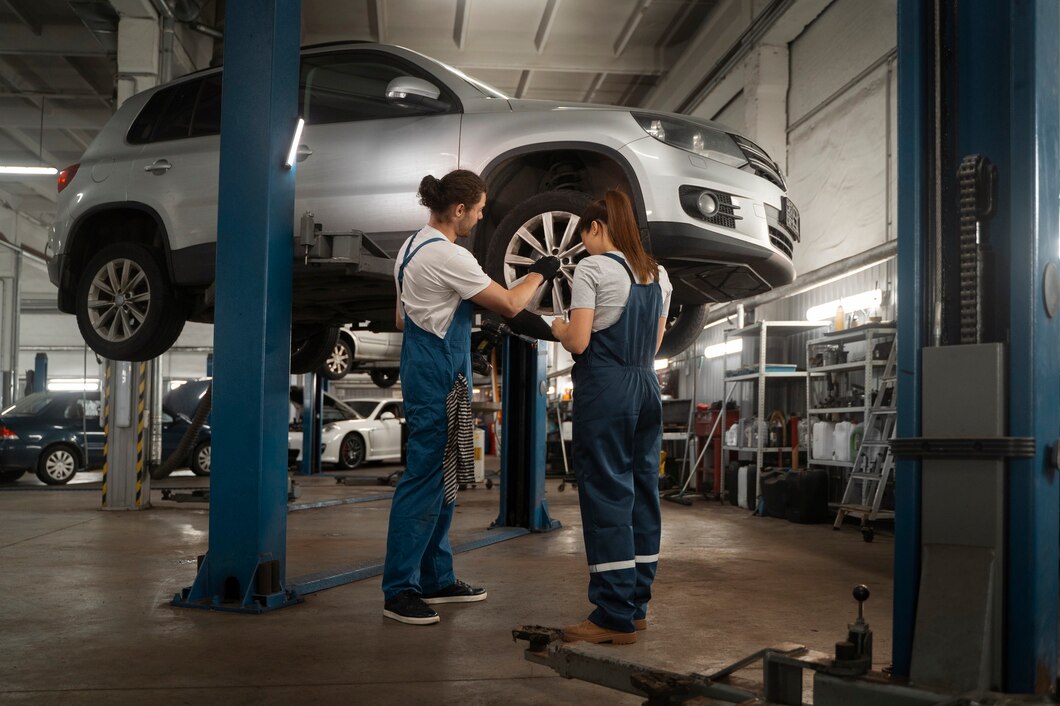The differential is a critical component of your car’s drivetrain, responsible for distributing power to the wheels and allowing them to rotate at different speeds, especially during turns. Ensuring your differential is in good working condition is crucial for the overall performance and safety of your vehicle. Here are some early signs that your car might need differential service.
1. Unusual Noises
One of the most common indicators that your differential needs attention is unusual noises. These can manifest as:
- Whining or Howling Sounds: If you hear a whining or howling noise while driving, particularly when accelerating or decelerating, it may indicate worn differential gears or bearings.
- Clunking or Clicking Sounds: A clunking or clicking noise, especially when turning or shifting gears, could suggest issues with the differential’s internal components or a lack of lubrication.
2. Vibrations While Driving
Experiencing vibrations or shuddering while driving can point to differential problems. This issue might be due to:
- Worn or Damaged U-Joints: Universal joints (U-joints) connect the drive shaft to the differential. If these joints are worn or damaged, they can cause vibrations.
- Imbalanced Driveshaft: An imbalanced driveshaft can also lead to vibrations that may be felt through the vehicle’s floor or steering wheel.
3. Leaking Differential Fluid
Differential fluid, also known as gear oil, is vital for lubricating the differential’s gears and bearings. Signs of a fluid leak include:
- Puddles Under the Car: If you notice fluid pooling under your vehicle, especially near the rear axle, it could indicate a differential leak.
- Low Fluid Levels: Regularly check the differential fluid level. A significant drop in fluid can lead to overheating and damage.
4. Difficulty Turning
The differential allows the wheels to turn at different speeds. If you experience difficulty turning or notice that your car struggles to navigate corners smoothly, it might be a sign of differential issues. This can manifest as:
- Resistance While Turning: Feeling resistance or stiffness when turning the steering wheel can indicate problems with the differential.
- Unusual Handling: Changes in your vehicle’s handling, such as pulling to one side or feeling unsteady during turns, may suggest differential trouble.
5. Excessive Tire Wear
Uneven or excessive tire wear can be another symptom of differential problems. This is often due to:
- Improper Power Distribution: If the differential isn’t distributing power evenly to the wheels, it can cause tires to wear unevenly.
- Misalignment: Differential issues can lead to misalignment, further contributing to abnormal tire wear patterns.
6. Warning Lights
Modern vehicles are equipped with various sensors and warning systems. If there is a problem with your differential, it may trigger warning lights on your dashboard, such as the check engine light or specific drivetrain-related warnings. Pay attention to these indicators and have your vehicle inspected promptly.
7. Poor Fuel Efficiency
A malfunctioning differential can affect your car’s fuel efficiency. If you notice a sudden decrease in your vehicle’s fuel economy, it could be due to:
- Increased Resistance: Problems within the differential can create additional resistance, making the engine work harder and consume more fuel.
- Improper Functioning: A differential that isn’t functioning correctly may not distribute power efficiently, leading to higher fuel consumption.
8. Burning Smell
A burning smell while driving can be a red flag indicating that your differential is overheating. This could be caused by:
- Low or Dirty Fluid: Insufficient or contaminated differential fluid can lead to increased friction and heat, causing a burning odor.
- Worn Components: Worn gears or bearings can generate excessive heat, contributing to the burning smell.
Regular maintenance and prompt attention to any signs of trouble are essential for keeping your differential in good working condition. If you notice any of these early signs, it’s crucial to have your vehicle inspected by a professional mechanic. Addressing differential issues early can prevent more severe damage and costly repairs down the road, ensuring your car remains safe and reliable on the road.











